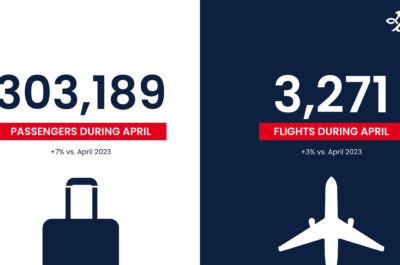…
Web Analytics may sound like something your IT department should deal with but it is in fact a key part of online marketing. Its primary function is measuring how well a web site is doing its job. The travel industry is spending millions of pounds on great looking web sites offering cheap flights, package deals and weekend breaks. This is a crucial part of the business and an extension of the brand, but are they working?
Measuring things is boring, but the interesting part is when you measure behaviour and try to serve up dynamic online content to take advantage of your new knowledge. For instance should you offer customers a “2 for 1“ deal or “book 1 get 1 free”? It means the same but which phrasing do people respond to? Web analytics is about measuring whether your online business is working.
To say “My website has 2 million visitors on any given Friday” is interesting but not useful. You need to know what they are doing there.
So how does web analytics fit with your Search Engine Marketing Campaign?
One characteristic of the new era following the dot.com boom at the turn of the century has been the inexorable rise of search engine marketing (SEM) as a component of the online marketing mix. Its significance is confirmed by the ever-increasing amount of money being spent on SEM. Travel businesses understand the importance of getting their web site and their services high on the search engine rankings as people search for cheap flights to Spain or golfing holidays.
Confirmation that this is a booming area of activity can not only be seen by the growth of the more successful search engines, as demonstrated by the recent Google float and accompanying increase in share price since, but also by the plethora of SEM boutique agencies which have sprung up to help on line marketing managers with the black art of successful SEM.
With the increasing amount of money being spent on SEM, online marketing managers are looking to their website analytics providers to show them a clearer picture of whether their expenditure is delivering the goods.
The web analytic vendors, ever keen to satisfy the demands of their customers, are attempting to provide some much needed science to this area, although there are many who would state that website analytics is as much an art as a science.
Any half decent website analytics offering can provide support for online marketing campaigns such as banner advertising, email and so on, and SEM can be treated by most website analytics systems as another online marketing campaign.
So job done? No, not quite! SEM has its own special demands on website analytics, and their users, and website analytics vendors need to address these.
The magic metric in assessing the success of any online marketing campaign is return on investment (ROI). Website analytics vendors will drone on about how their offering will provide online marketing ROI during their sales pitches. So much so that you could organise a sweep with your colleagues: How many minutes into their presentations before ROI is mentioned?
There are a number of website analytics solutions that can track return in terms of e-commerce sales volume. This in my opinion is too simplistic because sales value does not reflect true profitability as some products have different margins to others. Furthermore, the end objective of a lot of websites is not exclusively online sales. The website may be designed to drive calls to a call centre or stimulate a sale which is completed offline.
Website analytics vendors need to raise their game to provide solutions that can work with these websites and their SEM.
In all the excitement surrounding SEM, its little sister, search engine optimisation (SEO), is often overlooked. Here a website appears within search engine results due to its content rather than due to paid positioning. This natural traffic can be improved by optimising the website for search engines. The more savvy agencies are switched on to this and promote SEO as complimentary to SEM. From a web analytics point of view it is important to be able to separate traffic originating between the two, as the costs are different. SEO is free (apart from the agency cost!) and SEM is paid for.
The good news for online marketers is that SEM is very important to website analytics vendors. SEM features are already available from some website analytic vendors and is pretty high on the to-do list of the others. I expect a raft of announcements on this subject in the near future. That website analytics is important to search engines can be seen by Google’s recent purchase of website analytic vendor Urchin. I wouldn’t be at all surprised to see some more announcements in this area either.
John Harrison, is the CEO of Maxsi Ltd – Developers of eVisit Analyst. Maxsi Ltd has developed the eVisit Analyst range of advanced website analysis systems used to great effect by a number of blue chip companies. eVisit Analyst is used by clients in an array of sectors, ranging from travel, local government, financial services and academia.




































































































































































































